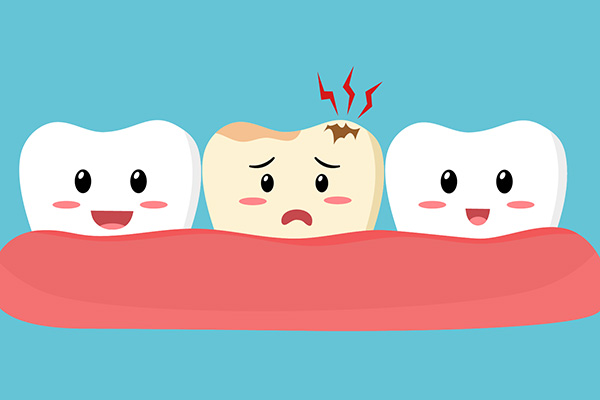 A general dentist offers many treatment options for cavities. Having cavities is not the end of your tooth’s life. The right treatment from your general dentist can restore your tooth. If you want to find out the options, here are the details.
A general dentist offers many treatment options for cavities. Having cavities is not the end of your tooth’s life. The right treatment from your general dentist can restore your tooth. If you want to find out the options, here are the details.
For fissure and pit cavities
The general dentist often finds these cavities on the chewing surfaces. It is easier for food particles and plaque to get into grooves and crevices on the cusps of teeth. These are the areas where fissure and pit cavities occur. People who do not brush often develop these cavities. The dentist can apply dental sealants on the back teeth of children and adults to protect the chewing surfaces.
Fissure and pit cavities can receive treatment with fluoride with early detection. For deeper cavities, the dentist will remove the decayed dental tissue. This will involve drilling. The dentist will repair the fillings if they are still small. The deep fissure cavities may also get dental crowns or root canal treatment.
For root cavities
A general dentist sees these as common cavities in older adults or seniors. These patients are more likely to have gum problems like receding gums. Gum recession is a condition in which the gum tissue surrounding the tooth is lower or higher on the root and tooth surfaces. This results in tooth root exposure, resulting in a higher risk for decay and bacteria. It also leaves the roots more vulnerable to acids from foods and beverages.
The dentist treats root cavities by removing the decayed parts of the tooth. Filling the cavity will follow. An infected pulp must have root canal therapy. Tooth decay can spread right away in cases like this. It is important to see the dentist for regular checkups for early treatment. A large root cavity will need a root canal treatment, topped with a dental crown.
For smooth-surface cavities
A general dentist sees these cavities as common on the sides of the patient’s mouth. These cavities affect the flat, outer surfaces of the teeth. Smooth-surface cavities are slow to develop. They can be a serious problem for those who do not practice proper oral care.
It is easy for the general dentist to treat these cavities. Fluoride treatments often reverse these cavities. Treatments in the form of varnish, gels, toothpaste, and enriched water are easy to access. Fillings can correct the shallow smooth-surface cavities.
Some people have interproximal cavities affecting the smooth areas between dentitions. The dentist will need a dental X-ray to detect these cavities. The dentist will treat them with fluoride right away. Dental fillings will restore deeper cavities.
Summary of cavity treatments
The general dentist will provide preventive measures for patients with early-onset cavities. Dental sealants can protect teeth from cavity formation. Larger cavities will need tooth-colored fillings. Deeper, more destructive cavities need root canal treatments. Dental crowns will go over teeth with large cavities and weak dental structure.
Different kinds of cavities need various effective treatments from your general dentist
Working with your general dentist is important in treating cavities. Early cavity detection provides better restoration. Treatments for cavities depend on the location and the gravity of the decay. Routine appointments with your general dentist will help determine which treatment fits your needs well.
Request an appointment or call Dragonfly Dental of Port Charlotte at 941-676-9225 for an appointment in our Port Charlotte office.
Related Posts
Dental sealants are used in general dentistry to protect teeth from developing cavities. They form a defensive layer on top of molars and premolars to prevent food and germs at bay. Here is additional information on how the dental industry utilizes sealants to protect patients' teeth.Sealants are slender plastic coatings that dentists paint onto the…
A tooth fracture can occur from many causes, such as accidents, grinding teeth, eating hard foods, and aging. Fractured teeth do not heal themselves, so visiting your general dentistry professional in the event of a cracked, broken, or fractured tooth is always advisable.Cracks in your teeth can manifest in different ways. Some are painful and…
If you have cracked, chipped, worn, or otherwise damaged teeth, chances are they are not beyond hope. Several general dentistry procedures exist to improve the appearance of your smile and strengthen your teeth and improve their function. Your dentist can explore all the options available to you and how each can benefit your smile.In the…
